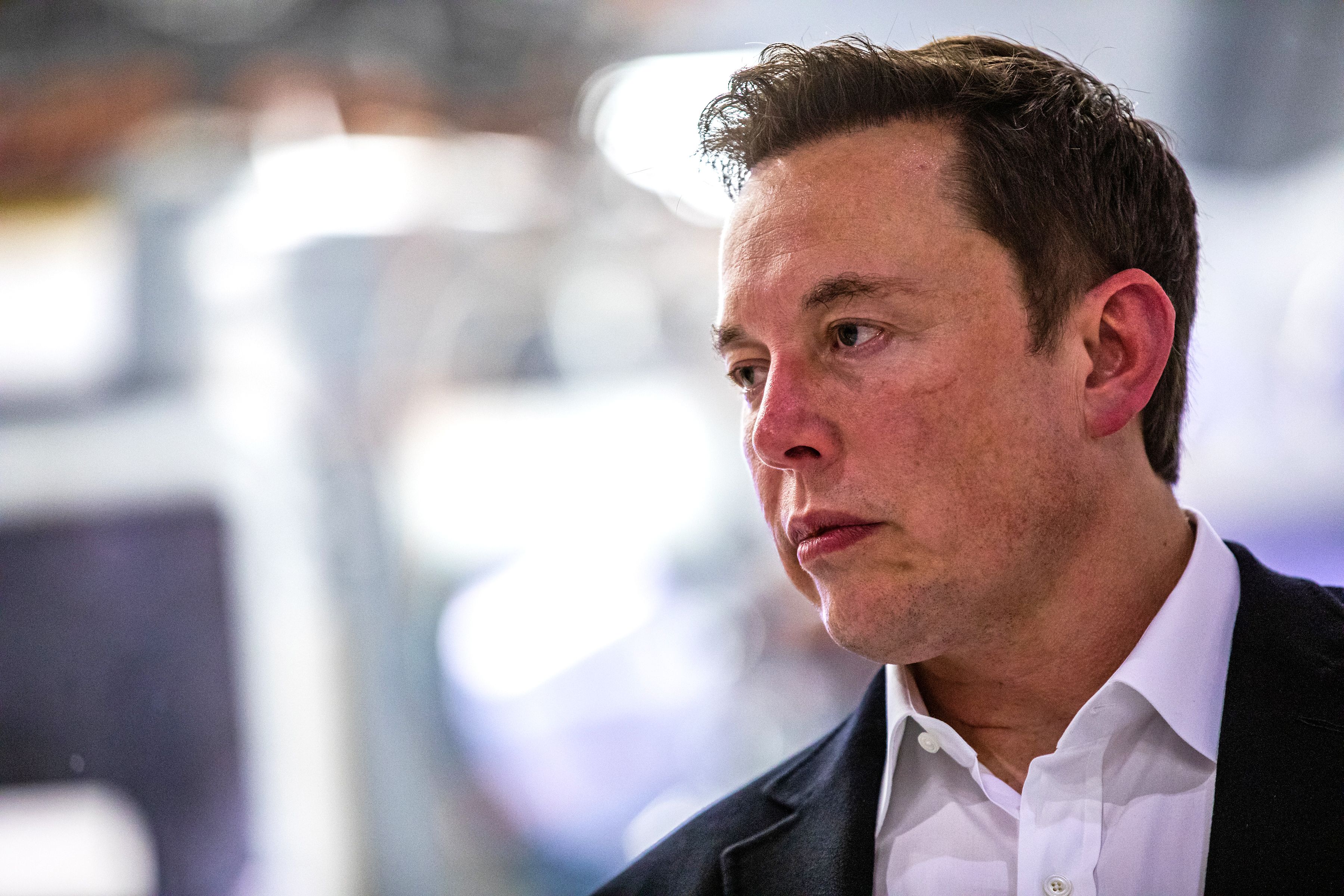'Ventilators' donated by Elon Musk can't be used on coronavirus patients, health officials say


A free daily email with the biggest news stories of the day – and the best features from TheWeek.com
You are now subscribed
Your newsletter sign-up was successful
Elon Musk's ventilator giveaway may do more harm than good.
After weeks of brushing off the COVID-19 pandemic as "dumb," the billionaire Tesla founder earlier this week announced he had 1,000 "FDA-approved ventilators" and ended up donating 40 to New York City's hospital system. Except the devices Musk gave away aren't powerful enough to use in the ICU, and health officials have actually warned against using them on COVID-19 patients because they could spread the virus further.
What Musk purchased and gave to New York's hospitals were BiPAP machines made by ResMed, a photo shared by the hospital system reveals. ResMed CEO Mick Farrell later confirmed Musk's purchase of 1,000 5-year-old "bi-level, non-invasive ventilators" known as BiPAPs to CNBC, and said it was "fantastic" that Tesla could transport ResMed's product like it did.
The Week
Escape your echo chamber. Get the facts behind the news, plus analysis from multiple perspectives.

Sign up for The Week's Free Newsletters
From our morning news briefing to a weekly Good News Newsletter, get the best of The Week delivered directly to your inbox.
From our morning news briefing to a weekly Good News Newsletter, get the best of The Week delivered directly to your inbox.
But hospitals are far more desperate for ventilators more invasive than BiPAP and CPAP machines, which are usually used to treat sleep apnea — many doctors don't even call them "ventilators," the Los Angeles Times' Russ Mitchell reports. In fact, CPAP machines may have only helped spread COVID-19 through the nursing home outside Seattle that was the center of the U.S.'s initial coronavirus outbreak, NPR reports. These machines can "possibly increase the spread of infectious disease by aerosolizing the virus," NPR writes. Health officials in King County, Washington, have since warned against using CPAP machines on coronavirus patients, as did the American Society of Anesthesiologists back in February.
What would actually help, Farrell added to CNBC, is if Musk's Tesla could produce and donate lithium ion batteries — ResMed can use them to make invasive ventilators that hospitals actually need.
A free daily email with the biggest news stories of the day – and the best features from TheWeek.com
Kathryn is a graduate of Syracuse University, with degrees in magazine journalism and information technology, along with hours to earn another degree after working at SU's independent paper The Daily Orange. She's currently recovering from a horse addiction while living in New York City, and likes to share her extremely dry sense of humor on Twitter.
-
 The 8 best TV shows of the 1960s
The 8 best TV shows of the 1960sThe standout shows of this decade take viewers from outer space to the Wild West
-
 Microdramas are booming
Microdramas are boomingUnder the radar Scroll to watch a whole movie
-
 The Olympic timekeepers keeping the Games on track
The Olympic timekeepers keeping the Games on trackUnder the Radar Swiss watchmaking giant Omega has been at the finish line of every Olympic Games for nearly 100 years
-
 Blue Origin launches Mars probes in NASA debut
Blue Origin launches Mars probes in NASA debutSpeed Read The New Glenn rocket is carrying small twin spacecraft toward Mars as part of NASA’s Escapade mission
-
 Dinosaurs were thriving before asteroid, study finds
Dinosaurs were thriving before asteroid, study findsSpeed Read The dinosaurs would not have gone extinct if not for the asteroid
-
 SpaceX breaks Starship losing streak in 10th test
SpaceX breaks Starship losing streak in 10th testspeed read The Starship rocket's test flight was largely successful, deploying eight dummy satellites during its hour in space
-
 Rabbits with 'horns' sighted across Colorado
Rabbits with 'horns' sighted across Coloradospeed read These creatures are infected with the 'mostly harmless' Shope papilloma virus
-
 Lithium shows promise in Alzheimer's study
Lithium shows promise in Alzheimer's studySpeed Read Potential new treatments could use small amounts of the common metal
-
 Scientists discover cause of massive sea star die-off
Scientists discover cause of massive sea star die-offSpeed Read A bacteria related to cholera has been found responsible for the deaths of more than 5 billion sea stars
-
 'Thriving' ecosystem found 30,000 feet undersea
'Thriving' ecosystem found 30,000 feet underseaSpeed Read Researchers discovered communities of creatures living in frigid, pitch-black waters under high pressure
-
 New York plans first nuclear plant in 36 years
New York plans first nuclear plant in 36 yearsSpeed Read The plant, to be constructed somewhere in upstate New York, will produce enough energy to power a million homes
